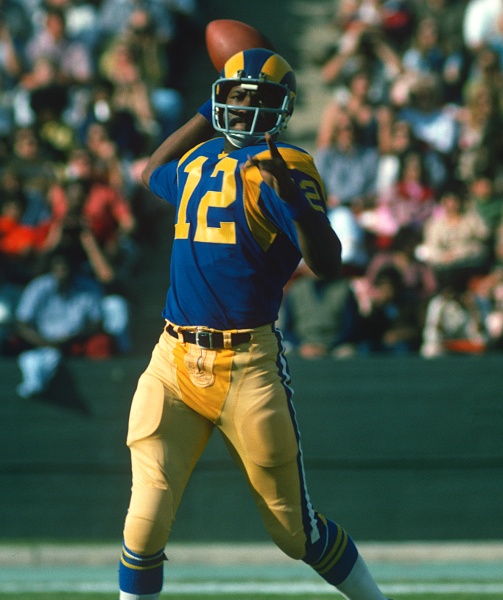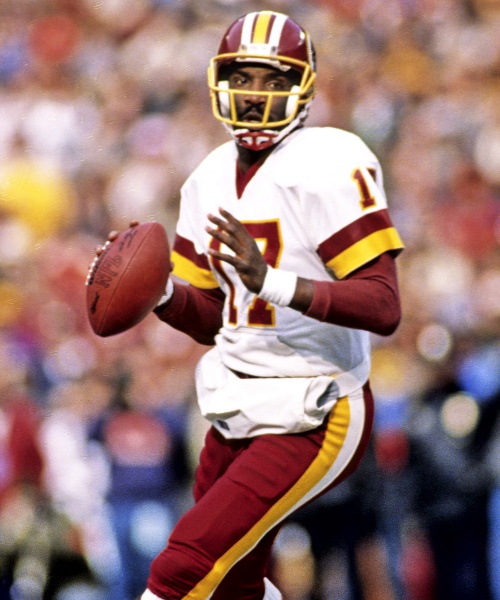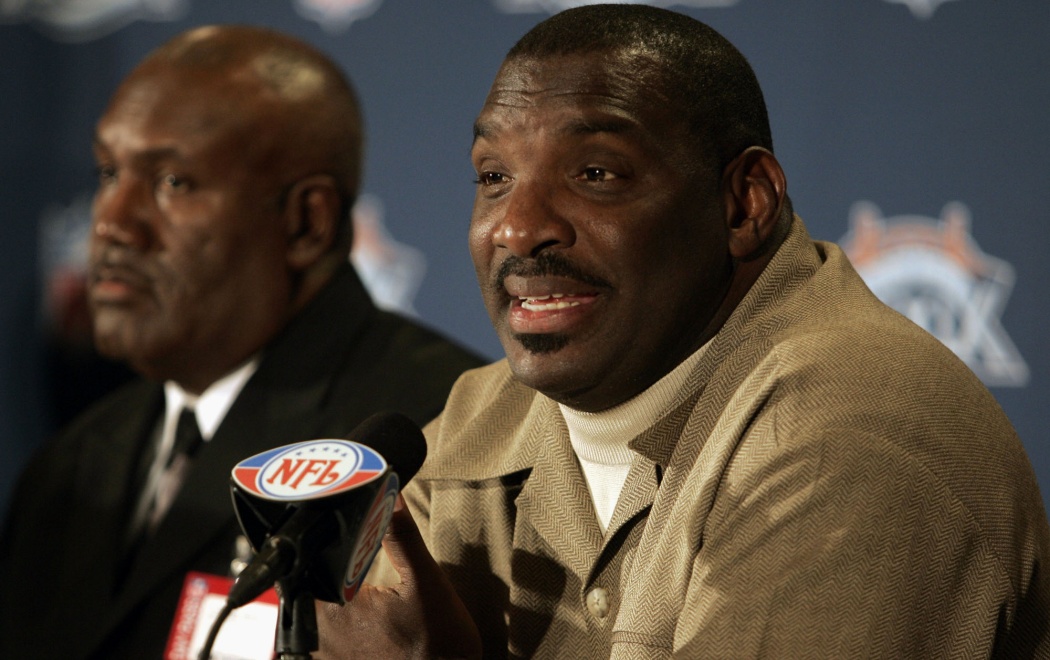In 1969, Harris was drafted by the AFL’s Buffalo Bills in the eighth round of the Common Draft, a year before the NFL merger with the AFL, he became the first Black quarterback to start a season opener in either league. He spent three years with the Bills. After that, he was released and signed by the Los Angeles Rams.
In 1974, he played for Rams head coach Chuck Knox who moved him into the starting lineup. Harris connected on 12 of 15 passes for 276 yards and three touchdowns and rushed for another score in his starting debut against the San Francisco 49ers. Harris led the Rams to a 37-14 victory in that game.

Harris led the Rams to the NFC Western Division title. He became the first Black quarterback to start and win an NFL playoff game. He was named to the NFC Pro Bowl team in 1974 and was selected MVP of that game. In 1975, he led the Rams to another division championship. He became the first African American to open a season as his team’s starting quarterback in NFL history.
In 1997, he was traded to the San Diego Chargers where he played three seasons before retiring. Following his playing career, Harris was in the head office for the Baltimore Ravens, Jacksonville Jaguars and Detroit Lions prior to officially retiring from the NFL in 2015.
Harris is one of the co-founders of the Black College Football Hall of Fame along with Doug Williams.
Williams received a lot of national attention for his brilliant performance with Washington in Super Bowl XXII leading the team to a win over the Denver Broncos. He was named Super Bowl MVP for throwing 340 yards and four TDs during the second quarter of the game, setting a single-quarter record. In 1988, he became the first Black quarterback to win a Super Bowl.
Williams was an All-American at Grambling State. He was a four-year starter and guided the Tigers to a 35-5 record and three Southwestern Athletic Conference titles.
In 1977, he led the NCAA in a number of categories, he had 3,249 yards from scrimmage and another 3,286 passing yards. He passed for 38 TDs that season and finished fourth in the Heisman Trophy voting behind Earl Campbell and was twice named Black College Player of the Year.
He had two great seasons with Tampa Bay in 1980 and 1982. He received MVP awards both seasons from the Buccaneers after throwing for over 3,000 yards in each of those seasons.
After the 1982 season, he left Tampa Bay and played for the Oklahoma Outlaws, later known as the Arizona Outlaws in the United States Football League. He had two great years in the USFL prior to the league folding in 1985. He threw for 6,757 yards and 36 TDs during those seasons.
In 1986, Williams came back to the NFL and signed with Washington. In 1988, he guided Washington to a big Super Bowl victory over Denver. In 1989, he retired from pro football. He finished his career with 23,755 passing yards, 136 passing touchdowns and 19 rushing TDs.

In 1998, Williams was named head coach at Grambling State, succeeding Robinson, where he led GSU to consecutive SWAC championships. He is currently the director of player development for the Washington football team.
Gabriel played 16 years in the NFL. He played 11 years with the Los Angeles Rams and five with the Eagles.
He started his pro career with the Rams in 1962. He led the Rams to a 41-14-4 overall and was selected to three Pro Bowls.
Following the 1972 season, Gabriel was traded to Philadelphia where he put together a sensational season and was named NFL Comeback Player of the Year. He led the Eagles with 270 completions, 460 attempts, 3,219 yards and 23 touchdowns. With Gabriel as the starting quarterback, the Eagles offense was the most prolific offense in the league.
Kurt Warner played 16 years of pro football including three seasons with the Iowa Barnstormers of the Arena League and one season in Europe.
In 1997, after the St. Louis Rams season had concluded, he signed a futures contract to enter the NFL in 1998, he was dealt to NFL Europe to play for the Amsterdam Admirals, where he would lead the league in TDs and passing yards that season.
Following that season, he came back to the Rams. In 1999, Warner replaced Trent Green, who had a season ending injury. Warner went onto have one of the best seasons by a quarterback in NFL history throwing for 4,353 yards with 41 TDs and completion rate of 65.1 percent. He led the Rams to the Super Bowl title in 2000. The Rams offense was nicknamed “The Greatest Show on Turf.”
Warner played in four Pro Bowls. He won two MVP awards. He played with the Rams from 1998-2003. He played one season with the New York Giants in 2004. After that, he played with the Arizona Cardinals from 2005-2009. Warner played in three Super Bowls (2000, 2001 and 2008).
In 2017, he was inducted into the Pro Football Hall of Fame.
